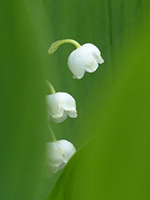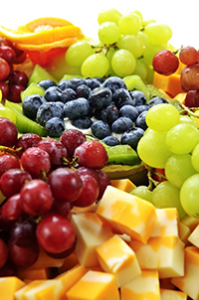 We’re well aware of the most common types of poisons that may be lurking in the cupboards in our homes:
We’re well aware of the most common types of poisons that may be lurking in the cupboards in our homes:
- Cleaning products
- Pesticides
- Automotive products like windshield washer fluid and antifreeze
- Insect repellants
- Animal products like flea and tick killers
- Swimming pool chemicals
- Mold and mildew killing products
- Health and Beauty products like shampoos, conditioners and cosmetics
- Weed killers and other lawn care products
What we tend to overlook sometimes are the most uncommon poisons that can be a danger to our children.
Among these uncommon poisons are plants we have in and around our home.
We make our home pretty and some of the common house plants that don’t cause a problem are African Violets, Begonias, Forsythia, Petunia and Poinsettias at Christmas time. However, there are several pretty plants that can be deadly:
- Azaleas
- Daffodils
- Lily-of-the-Valley
- Mistletoe
- Morning Glory
- Oleander
Also among these poisonous plants are any of the wild mushrooms you may see growing around your yard are also deadly.
Preventing poisoning in your home is simple enough by keeping these harmful products kept under lock and key and plants up and out of reach of little fingers. Here are a few tips:
- Store chemicals and pesticides in locked cabinets away from children and even your pets
- Use the safest products you can – sometimes “green” products are a safer route
- Be sure the lids on all products are replaced and tightened after every use
- If you are using rodent killer, use packaging that is tamper resistant and child-proof
- Do not transfer chemicals or cleaners out of their original containers
No matter if there is an interaction with poisonous household products or the plants we have to make our home pretty, a phone call to your local Poison Control Center is critical.
 Grocery shopping can be a tricky business, especially for those who are trying to shop healthier. However you can make smarter decisions when shopping by making use of a few tried and tested techniques.
Grocery shopping can be a tricky business, especially for those who are trying to shop healthier. However you can make smarter decisions when shopping by making use of a few tried and tested techniques.
 We’re well aware of the most common types of poisons that may be lurking in the cupboards in our homes:
We’re well aware of the most common types of poisons that may be lurking in the cupboards in our homes: